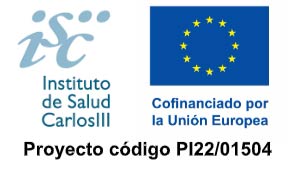
Patient Dignity Question as an intervention for the alleviation of suffering
Mixed methodology study in patients with advanced disease.
Relief of suffering is of vital importance in palliative care. One in four patients with advanced disease report unbearable suffering. Existential issues such as demoralization or the threat to perceived dignity contribute to the patient's suffering. This suffering can sometimes be reflected in expressions of wanting to die. Given this status, it is known that interventions that promote the perception of one's own dignity can, in addition to recovering a sense of dignity, promote the meaning of life and reconnection with oneself. They can thus contribute to the relief of the patient's suffering.
The Patient Dignity Question is a brief intervention, designed for patients with advanced disease, which aims to provide person-centered care. This intervention consists of asking the patient what he/she thinks the healthcare professional should know about him/her in order to be able to offer the best possible care or accompaniment in this phase of life.
The goal of this question is to get to know the caregiver better in order to provide the best possible care. In this regard, this project has two goals:
![]() To study the effect of the 'Patient dignity question' on levels of demoralization and perceived dignity.
To study the effect of the 'Patient dignity question' on levels of demoralization and perceived dignity.
![]() To know the effect of the 'Patient dignity question' on expressions of wanting to die.
To know the effect of the 'Patient dignity question' on expressions of wanting to die.
In other cultures, the patient dignity question has been shown to be an effective intervention that promotes the perception of dignity and the search for meaning. These results hint at the possibility of a reduction in patient suffering following the patient dignity question. In the Spanish context, there is no study that has studied the effect of the 'Patient dignity question'.
1
Translating and culturally adapting the 'Patient dignity question' to the Spanish context.
2
To further explore patients' experiences of the 'Patient dignity question' intervention and its effect.
3
To learn what issues patients consider relevant at the end of life to ensure person-centered care.
This is a mixed methodology study (qualitative and quantitative pre-post methodology). The translation and adaptation will be carried out following the EORTCprocedure . We will record data partner -demographic and clinical data and will assess, on two successive days (T0-T1), demoralization (DS-II es), perception of dignity (PDI) and experience of wanting to die (AFEDD). Patients' experience will be explored with conversational interviews and relevant aspects with 'Patient dignity question' responses. This study will provide insight into the effects of the 'Patient dignity question', which can be presented as a simple intervention in alleviating patient suffering.

Alazne Belar
Principal Investigator
abelar@unav.es

María Arantzamendi
Co-Principal Investigator
marantz@unav.es

Carlos Centeno
Research fellow
ccenteno@unav.es

Marina Martínez
Research fellow
